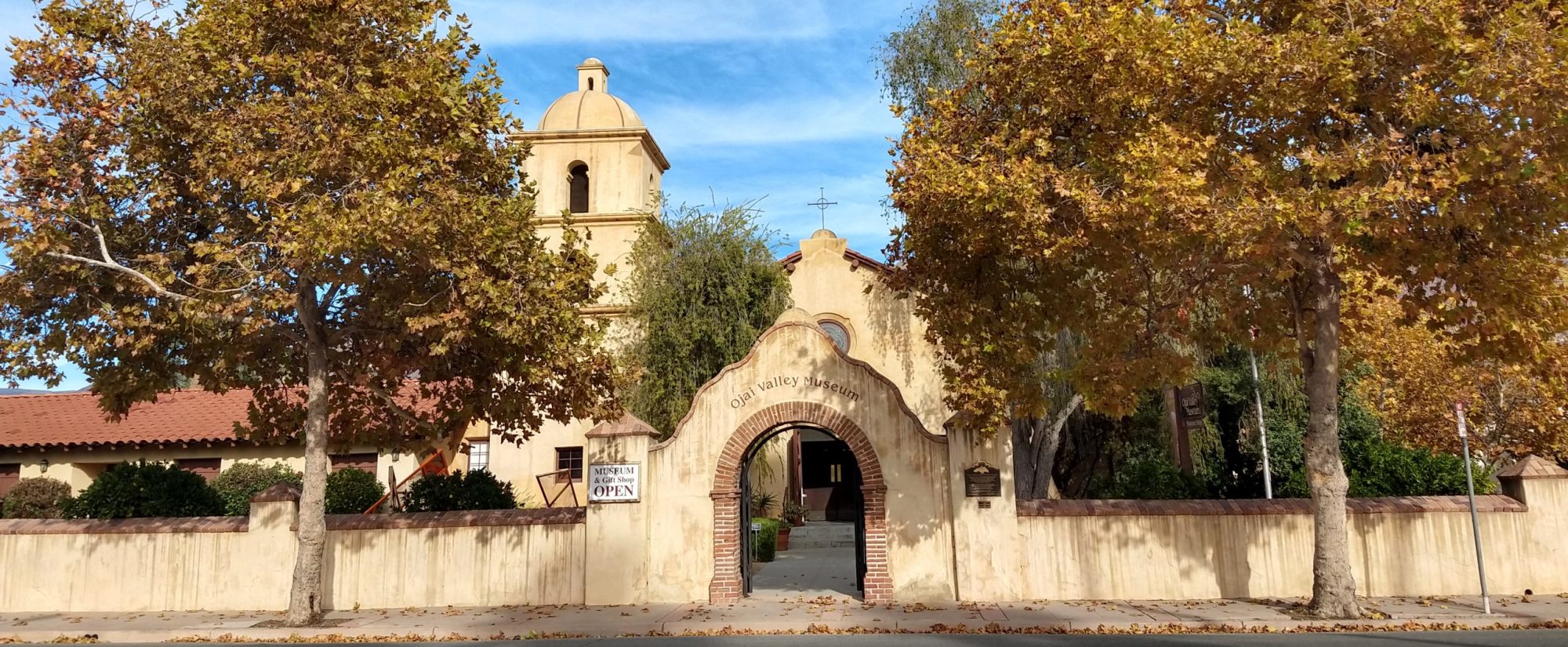Our Town, Part 2 by Helen Baker Reynolds
Among the valley’s residents even in earlier times were families whose interests were not provincial. A reading club and a Chautauqua group had been formed for the purpose of study, and when mother started a Shakespeare Club it too became a focus of studious effort. The members even, from time to time, enacted Shakespearean plays. Mother, herself, in the role of Lady Macbeth, attained a degree of local acclaim. She was troubled by the necessity of saying, “Out, damned spot,” but salved her conscience by saying “damned” very quickly and almost inaudibly.
A center of community life was our Presbyterian church. Unimposing in design, it was nevertheless a joy to the eye because of the masses of climbing roses that transformed it into a bower. It stood cat-a-corner from our front gate and across from the grammar school. Church bells and school bells punctuated our days, and both rang out in the event of a fire.
In addition to regular Sunday services, many other worthy activities were centered on sound local charities: the Ladies’ Missionary Society; and a local branch of the Women’s Christian Temperance Union. All I remember about the WCTU is that each member wore a small white ribbon bow pinned to the front of her dress, and the Ojai group sometimes sponsored a program denouncing the Evils of Drink.
Besides church and temperance and study club activities, there were other events of importance scattered throughout the year. In very early times just before the turn of the century a festive event for the young social group had been an all-day tally-ho ride around the “Triangle” to Ventura, to Santa Paula, and return. Mrs. Lord’s musicales had become quite a social feature. Mrs. Lord was our teacher of music and one who would have graced the life of any larger community. She maintained and developed her own technique as a versatile musician while giving devoted care to her family and inspired instruction to pupils.
Mrs. Lord’s classes and her recitals enriched the simple life of our valley. (Editor note: Mrs. Lord’s daughter, Agnes Gally, carries on the family tradition today, as a violinist in the Ventura County Symphony and a local string quartet.)
An afternoon tea at the Thacher school was always a gracious event, and once every year the school invited the whole valley to a reception. In the era of taffeta petticoats there would be a great deal of rustling, and the white kid gloves were everywhere in evidence. Children attending with their parents would be starched and scrubbed and on such good behavior to be almost unrecognizable. Madam Thacher, as she was always called (the mother of the headmaster) presided at all such affairs with the utmost charm and dignity. Whenever I would be led up to greet her I would have the dazzled sensation of being presented at court.
The Tournament was a tremendous event in our otherwise quiet valley. Flowers lent an added note of gaiety; backstops and grandstands were bedecked with massive bunches of lupine and California poppies.
On Saturday evening at the close of the tournament, the Thacher school held a dance. When I was a child, no one from our family attended these festive gathering, for mother disapproved of dancing. Later, when I was in high school, I questioned mother about her scruples with a good deal of tearful emotion. Why was the dancing wrong, I wanted to know? How about mother’s own Grandmother Day, who danced the mazurka so beautifully?
Mother was sympathetic. She was not forbidding me to dance, she explained; I might dance if I thought it was right. But she felt it her duty to tell me (here she showed a great deal of embarrassment) that modern dances such as the waltz, and now others she had heard spoken of as the one-step and two-step and fox trot, were likely to rouse the baser impulses in men and boys. Of course, when her grandmother was young, dancing had been quite different. There seemed little reason to fear the moral effect of the mazurka.
Living close to the village center, mother’s scruples perhaps were confirmed by the character of the public dances occasionally held in the grammar school assembly hall. For all I know, these dances may not have been quite innocuous. They were noisy, however, and to judge by the sounds, not excessively refined. The Hoodlums, who either attended or looked through the windows, uttered rowdy whoops and catcalls above the sounds of music and uproarious shouts of laughter.
Immured in our Snug Little World nearby, we heard the sounds of revelry as echoes straight from hell. No one of us, as I recall, ever commented on the noise from the schoolhouse. Mother would have felt embarrassed to take open cognizance of such goings-on, and from her, our mentor, the rest of us took our cue.
